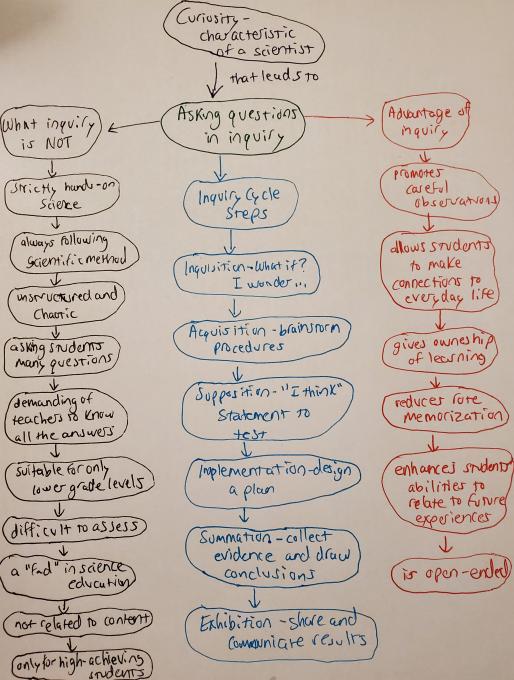Laura
Forum Replies Created
-
LauraParticipantI am in the same boat as you! My Honors Biology students complete high level independent research projects and have gone on to county, district, state, and international science fair. They very much used open-ended inquiry. It is my general level and lower level students that I have not yet turned loose on inquiry. I need to figure out a way to do this so they can take ownership of their learning but still stay on task and pick a reasonable topic (not like which paper towel is the most absorbent)!in reply to: Inquiry in Your Classroom #722228
-
LauraParticipantLast year the first lab I did with my lower level freshmen biology students used fortune fish, those thin red fish that may curl in hands somewhat and then reveal a "fortune". This was used in a guided and eventually somewhat open inquiry. I gave each student a fish, had them place them on their open hand and then describe the result (so that part obviously was teacher-guided). Then I asked why the fish curled or did not curl. Then students speculated why and I told them to come up with a factor they could test to see what the cause was. They came up with a wide variety of explanations and used materials in the classroom to test their hypotheses, some using water, some placing the fish on their desks, some placing the fish on other body parts, etc. We saw varying results and then researched online to determine the actual scientific explanation. This was not true inquiry because it was not truly open-ended but it was a first day activity, meant to be relative quick and easy, yet intriguing for students. Students were able to wonder about the cause and then come up with a hypothesis to test. In the future I think I could pick a topic that was not so cut and dry to allow for more open-ended investigation. Maybe taking students outside, having them formulate an "I wonder" statement about their choice of topic, create a hypothesis to test, and carry out an investigation.in reply to: Inquiry in Your Classroom #722221
-
LauraParticipantI found the article very enlightening, especially the myths associated with inquiry. I am a high school teacher and think I want to use more inquiry in my everyday classroom activities but struggle to fit it in and cover the required material for end of course tests. I teacher upper level students who complete very thorough research projects so definitely inquiry there but I find it harder to work it in with my lower ability students. I guess I need to learn more on how to guide them and help them stay on task in a more open learning format.
 in reply to: Intro to Inquiry #722189
in reply to: Intro to Inquiry #722189 -
LauraParticipantI love this. I have just recently heard of Jamboard but want to use it! Your processing of the article was much like mine only the layout is different.in reply to: Intro to Inquiry #722146
-
LauraParticipantI love the spider web here and the idea behind it- that inquiry knowledge gained branches out into future experiences.in reply to: Intro to Inquiry #722141
